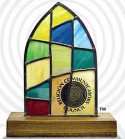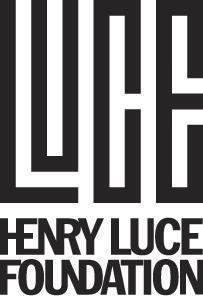
CHAPLAINS wins two major awards !
The Wilbur Award and the Gabriel Award!

MEET THE CHAPLAINS

Paul Hurley
Military Chaplain
Father Paul Hurley is a US Army Colonel and Catholic priest who serves the troops as senior chaplain in Afghanistan. His story confronts the larger questions about God and war, faith and freedom and the price to be paid.
Karuna Thompson
Prison Chaplain
Karuna Thompson is a Buddhist woman working in a men’s maximum-security prison in Oregon with over 2,000 inmates. She serves men who have been convicted of violent crimes and does so with little regard for her own safety, as she helps them discover a side of themselves they never knew.
Melissa Brannan
Corporate Chaplain
Melissa Brannan is part of the 120-member chaplain team at Tyson Foods, a corporation that has made an unusual commitment in the care of its 120,000 employees based in the belief that Tyson is to be a “faith friendly” company.
Barry Black
Senate Chaplain
Barry Black and Father Pat Conroy are the chaplains to the US Senate and the US House of Representatives, who continue a tradition that dates back to the Founding of the nation. What is the role of chaplain in government and is it a violation of separation of church and state?
Khalil Refai
Police Chaplain
Khalil Refai is the newly appointed Muslim chaplain for the Hamtramck Police Department near Detroit, MI where the police chief understood the need for a bridge between his department and the rapidly growing Muslim community.
Kathleen Ennis-Durstine
Hospital Chaplain
Kathleen Ennis-Durstine is senior chaplain at Children’s National Medical Center in Washington, DC. Her daily focus is the spiritual care of sick children and their families.
Rabbi Arthur Rosenberg
Retirement home Chaplain
Rabbi Arthur Rosenberg enjoyed an accomplished career as a film and television actor but now serves as chaplain for the Motion Picture and Television Fund–Hollywood’s senior care and retirement center.
Billy Mauldin
NASCAR Chaplain
Billy Mauldin is chaplain at NASCAR and travels the circuit as the spiritual pastor for the thousands who stage the races that have become one of America’s most popular and dangerous sports.BECOME A CHAPLAIN
Interested in becoming a Chaplain ? In order to become a Chaplain, you would first need to be endorsed by your faith-tradition, but to begin the journey towards Chaplaincy — here’s a great place to start: Association of Professional Chaplains

Contact your Faith Tradition’s Chaplain Program:
TO LEARN MORE FROM MPT
Chaplains Resources
The following resources were suggested by our consultants in the field of chaplaincy and pastoral care. This is intended to be a living document. We welcome your feedback and input. Email us at jen@journeyfilms.com if you have any additional resources to include.
Books
Soul Repair will help veterans, their families, members of their communities, and clergy understand the impact of war on the consciences of healthy people, support the recovery of moral conscience in society, and restore veterans to civilian life. When a society sends people off to war, it must accept responsibility for returning them home to peace.
2. Faith and Magick in the Armed Forces — by Stephani E. Barner
Provides guidance and genuine support to military Pagans and Wiccans as they proudly serve our country.
Viktor Frankl’s classic memoir on his experiences in Nazi Death Camps — Franklargues that we cannot avoid suffering but we can choose how to cope with it, find meaning in it, and move forward with renewed purpose. Frankl’s theory – known as logotherapy, from the Greek word logos (“meaning”) – holds that our primary drive in life is not pleasure, as Freud maintained, but the discovery and pursuit of what we personally find meaningful.
2. Violence: Reflection on a National Epidemic — by James Gilligan
Drawing on firsthand experience as a prison psychiatrist, his own family history, and literature, Gilligan unveils the motives of men who commit horrifying crimes, men who will not only kill others but destroy themselves rather than suffer a loss of self-respect. With devastating clarity, Gilligan traces the role that shame plays in the etiology of murder and explains why our present penal system only exacerbates it.
3. Down in the Chapel: Religious Life in an American Prison — by Joshua Dubler
An essential interpretation of faith in an age of mass incarceration, Down in the Chapel reveals what prisoners do with religion, and what religion does with them.
The Work of the Chaplain is the ideal starting point for all—including seminarians—who are exploring a call to minister outside the walls of the church. This new resource meets a critical need for an introductory and overview look at chaplaincy in general.
2. A Ministry of Presence: Chaplaincy, Spiritual Care, and the Law — by Winnifred Fallers Sullivan
In A Ministry of Presence, Winnifred Fallers Sullivan explores how chaplaincy works in the United State and in particular how it sits uneasily at the intersection of law and religion, spiritual care, and government regulation.
3. Professional Spiritual and Pastoral Care: A Practical Clergy and Chaplain’s Handbook — by Stephen B. Roberts
An essential resource that integrates the classic foundations of pastoral care with the latest approaches to spiritual care.
4. The Arts of Contemplative Care: Pioneering Voices in Buddhist Chaplaincy and Pastoral Work — by Cheryl A. Giles
Powerful and life-affirming, this watershed volume brings together the voices of pioneers in the field of contemplative care–from hospice and hospitals to colleges, prisons, and the military. Illustrating the day-to-day words and actions of pastoral workers, each first-person essay in this collection offers a distillation of the wisdom gained over years of compassionate experience.
5. Spiritual Care in Practice: Case Studies in Healthcare Chaplaincy — by George Fitchett
These diverse case studies make a compelling case for the importance of effective spiritual care in healthcare and provide unprecedented insight into the essential role of the chaplain within the healthcare team.
6. Injustice and the Care of Souls: Taking Oppression Seriously in Pastoral Care — by Sheryl Kujawa-Holbrook
Pastoral care is often focused on individual problems, but much of what harms and impedes us stems from the larger social maladies at work in our lives. This unprecedented gathering of two dozen essays discusses the realities of racism, sexism, heterosexism, ageism, ableism, and classism prevalent within the church and society in an effort to broaden and inform pastoral caregivers with the knowledge and the skills needed to respond effectively to oppressed and marginalized persons.
7. Pastoral Theology in an Intercultural World — by Emmanuel Y. Lartey
Lartey has lived and taught for many years in Africa, Great Britain, and the United States. He shares his intercultural approach to pastoral care, an approach which is vital to the increasingly wide range of both lay and ordained practitioners who work in different settings, whether new to the field or already established
8. Pastoral Care and Counseling: Redefining the Paradigms — by Nancy J. Ramsay
Rapid changes have occurred in theological, social, and medical contexts broadening the understanding of care. The shift from the “living human document” to the “living human web” both enriches and challenges the study and practice of pastoral theology. Just as the Dictionary of Pastoral Care and Counseling defined the field of Pastoral Care, this volume brings the field current.
Through a combination of interviews with nurses, doctors, and chaplains across the United States and close observation of their daily routines, Wendy Cadge takes readers inside major academic medical institutions to explore how today’s doctors and hospitals address prayer and other forms of religion and spirituality.
Perseverance is designed to offer guidance, challenge, clarity and consolation to all the people doing their work day-by-day. Wheatley focuses on the situations, feelings, and challenges that can, over time, cause us to give up or lose our way. Perseverance is a discipline—it’s a day-by-day decision not to give up.
2. Hoping for More: Having Cancer, Talking Faith, and Accepting Grace — by Deanna A. Thompson
Told in shimmering prose, Hoping for More takes readers on an unsentimental journey through the valley of the shadow of cancer–beyond the predictable parameters of prayer, the church, even belief in life after death. What emerges is a novel approach to talking faith and accepting grace when hope is all you’ve got.
3. Falling Upward: A Spirituality for the Two Halves of Life — by Richard Rohr
In Falling Upward, Fr. Richard Rohr seeks to help readers understand the tasks of the two halves of life and to show them that those who have fallen, failed, or “gone down” are the only ones who understand “up.”
Articles & Journals
Discussion Questions
TO SEE MORE WORK FROM JOURNEY FILMS
Consultants
- Sheryl A. Kujawa-Holbrook is Professor of Practical Theology & Religious Education at Claremont School of Theology. She is author of Pilgrimage — The Sacred Art and God Beyond Borders: Interreligious Learning Among Congregations.
- Wendy Cadge is professor of Sociology at Brandeis University and author of Paging God: Religion in the Halls of Medicine.
- Mary Hess is Professor of Educational Leadership and Chair of Leadership at Luther Seminary.
- John H. McDargh is Associate Professor in the Theology Department at Boston College.
- Cheryl A. Giles is Francis Greenwood Peabody Senior Lecturer on Pastoral Care and Counseling at Harvard Divinity School.
- Dawn Hood-Patterson is a doctoral student at Brite Divinity School at Texas ChristianUniversity in Fort Worth, Texas, and a chaplain at Cook Children’s Medical Center.
- Gretchen Dysart, MSC is a Marianite of Holy Cross and a former vice president at Journey Films
- Eric Wester is retired US Army Colonel and Director of Federal Chaplaincies for the Evangelical Lutheran Church in America
- Paul Gasek is president of Stony Brook Films.
- Rev Emily Griffin is associate rector for Adult Education and Formation at St John’s Episcopal Church in McLean, VA.
FUNDING PROVIDED BY







CHAPLAINS CLIPS
The segment brings the viewer onto the battlefield where most every decision has significant and vexing moral implications. The military chaplains talk about the hospital treating the wounded as “sacred ground.” Chaplain Hurley says how not every injury a soldier suffers is visible on the surface. Today one of the most talked about themes is the notion of “moral injury.”
Few themes are more emotionally charged than our system for incarceration. How we treat the prisoner is one of the most revealing aspects of our culture as it raises issues about basic human rights, justice and civil order. Is there anything redeeming in a person who murdered the innocent? Buddhist chaplain Karuna Thompson incorporates beliefs in basic goodness into her work with prisoners.
When Chaplain Barry Black publicly chastised his flock – the US Senate – for the 2013 budget fiasco, many Americans and the media cheered him rather than question notions of the separation of church and state. Black used his moral authority to speak truth to power. That courage came from his conviction about the importance of prayer combined with his oath of public service.
If there is one chaplain recognized by millions of Americans it is Father Mulcahy from the television series M*A*S*H. Actor William Christopher speaks about the attributes people often admire in his character – perseverance and hope in the face of frustration. He also sees Mulcahy believing his life is an affirmation of faith. It is that sense of “the call” Christopher tried to instill in his famous portrayal.
News headlines recently proclaimed Hamtramck, Michigan, the first town in America with a majority Muslim population. How is the growing Muslim population changing America and do chaplains offer any insight or direction? The police officer who rides with new Muslim Chaplain Khalil is surprised to learn how Muslims regard police but the experience is also an education for the chaplain.
Nick Terry is an example of how many come to chaplaincy as a second career. Terry demonstrates the courage it takes to walk away from the spotlight to follow God’s invitation. The story raises questions about what church really means – is it simply a community building or can an itinerant group with the similar spiritual interests be church as well?
Melissa Brannan of Tyson Foods has taken years of training that prepared her both as a licensed family therapist and a professional chaplain. She can recognize when a fellow worker is in need. She knows when to offer advice and when advice might even be harmful. That training is key to maintaining long term, trusting relationships with those she works beside each day.
Rabbi Arthur Rosenberg remembers that “fateful day” when he walked away from a successful acting career to answer “the call.” How does a person discern their own calling? Arthur’s work raises awareness for how senior citizens need to be honored for the gifts they offer. The Torah speaks of respecting those with “white hair ” yet too often the reality is very different.

